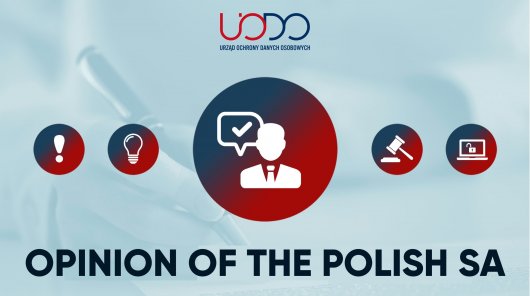
Police and prosecution access to telecommunications data
Poland should amend the Telecommunications Law with regard to the rules for access by ‘authorised entities’ to data covered by telecommunications secrecy. Currently, the powers of the are too broad. This is confirmed by the CJEU ruling of 30 April 2024 in case C- 178/22.
The President of the Personal Data Protection Office addresses these comments to the Deputy Minister of Foreign Affairs, Ms Agnieszka Bartol-Saurel.
The Court of Justice of the European Union (CJEU) ruled in case C-178/22 Procura della Repubblica presso il Tribunale di Bolzano that Article 15(1) of the ePrivacy Directive (2002/58/EC) allows national courts to authorise access to telecommunications data. In this particular case, however, taking into account the Italian legislation, he reserved that the following conditions must be met here:
- the proceedings must be for an offence punishable by no less than 3 years of imprisonment
- there must be sufficient grounds for committing such offences
- the data must be relevant to establishing the factual circumstances.
At the same time, the court must have the right to refuse a request for access to data if the case concerns an offence that is clearly of a minor nature.
National law cannot allow access to telecommunications data on a general preventive basis. Such access is only justified when combating serious crime or preventing serious threats to public security.
In Polish law, the rules on the possibility of obtaining telecommunications data for the purposes of criminal proceedings are regulated in Article 218(1) of the Code of Criminal Procedure and Articles 180(c) and 180(d) of the Telecommunications Law. Such data may be disclosed if it is relevant to the pending proceedings. However, the provisions do not explicitly and precisely state that access to the data is conditioned by the seriousness of the offence and its type. Nor do they assume that a law enforcement request for personal data is subject to verification.
In a democratic state under the rule of law, the legitimacy of the disclosure of telecommunications data should be subject to such a control, it would strengthen citizens' trust in the state and eliminate the risk of disproportionate interference with fundamental rights as well as certainty in the application of the law. The CJEU has pointed this out in other judgments, e.g. in the judgment of 8 April 2014 in the joined cases Digital Rights Ireland Ltd (C-293/12) and Karntner Landesregierung (C-594/12).
At the same time, the control itself by a court or independent administrative authority should be necessary and adequate in a democratic order, and carried out in accordance with the principle of proportionality (in line with the CJEU judgment of 2 March 2021 in case C-746/18).
Furthermore, the President of the DPA has raised on several occasions that the CJEU in its rulings, i.e.
- in its judgment of 6 October 2020, La Quadrature du Net and Others v Premier ministre and Others, Joined Cases C-511/18, C-512/18 and C-520/186,
- in its judgment of 6 October 2020, Privacy International v Secretary of State for Foreign and Commonwealth Affairs and Others, Case C¬623/177,
- and in its judgment in Case C-470/21, La Quadrature du Net and Others v. Premier ministre and Ministere de la Culture,
found that the indiscriminate collection of data by telecommunications undertakings on all users is not in compliance with the Charter of Fundamental Rights of the European Union.
Therefore, according to the President of the Personal Data Protection Office, Poland should amend the Telecommunications Law with regard to the rules of access by authorised entities to data covered by telecommunications secrecy.
At the same time, the President of the Personal Data Protection Office reminds that the Parliament is already proceeding with a draft act on the Law on Electronic Communications (parliamentary print no. 423), which contains the same solutions as before , non-compliant with the CJEU case law. The President of the OFODO indicated this problem in his opinion for the Chancellery of the Sejm.



